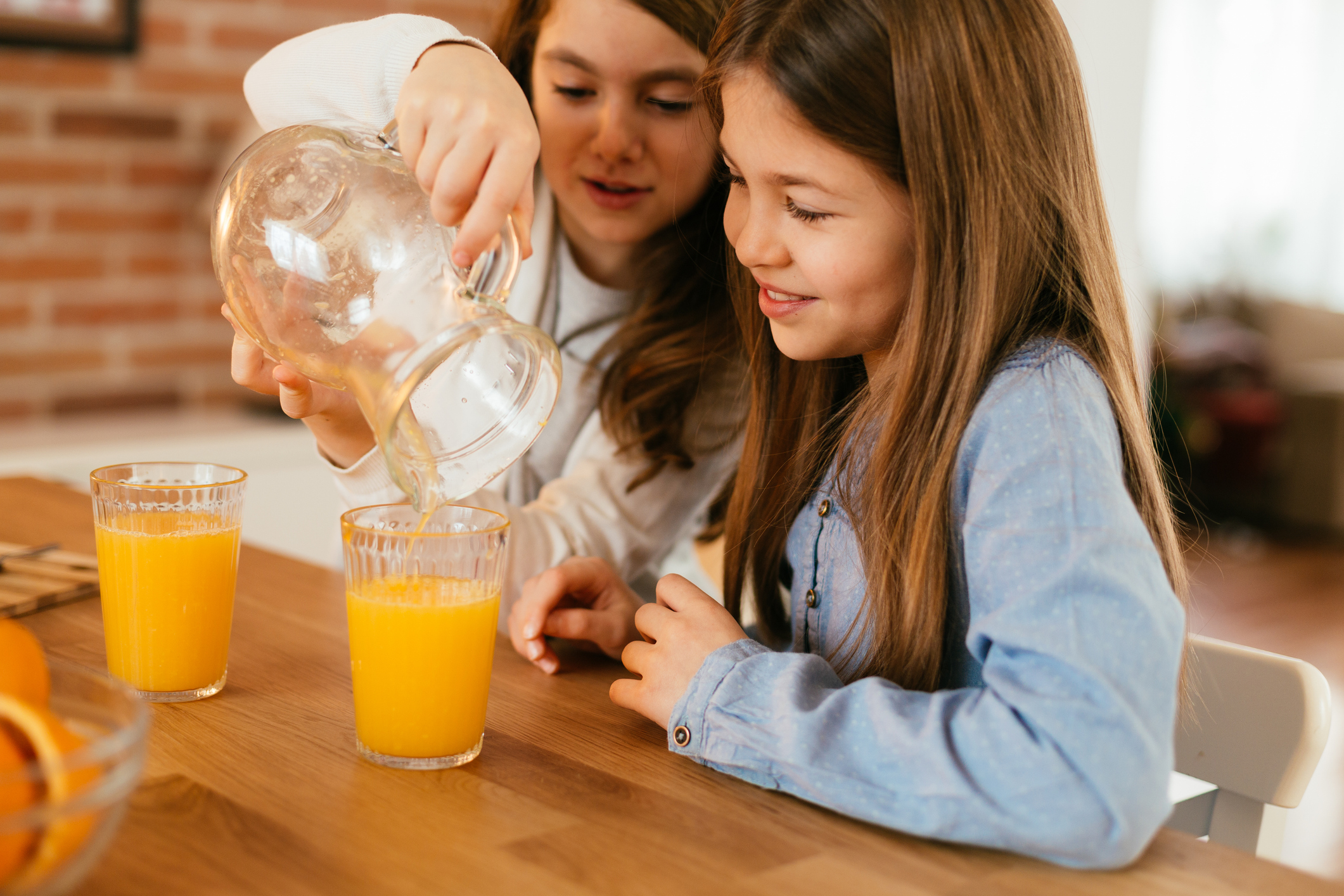Charging for playdates: money savvy or rude? I'm a mum of three and here's why I think it's the craziest parenting trend yet
A frugal mum sparked a debate after admitting she charges other parents for playdates with her kids.


Brianna Weimar, a money-saving mum, has sparked a heated discussion online by claiming she charges other parents for playdates. Critics say her actions are rude, while others have praised her money-saving ways. Our Consumer Editor - and mum of three with decades of playdate invoices to backdate - wades into the debate.
Once upon a time, long ago in a far-off land, parenting was simple. Back then keeping kids entertained was an easier, more wholesome task. We didn't have to worry about how to reduce kids' screen time and we'd never even heard of overparenting - we just invited our kids' best friends over to play and the kids ran amok in the garden while we did... whatever it was mums did before scrolling.
But now even the humble playdate is fraught with modern complications that parents must navigate with caution. Playdates used to go something like this:
- Your kid made friends with another kid
- They begged to invite their new friend round to play
- You made small talk with the other mum until you issued the invite
- She said yes
- The kid got dropped off to play
- You had a couple of hours of peace while the kids played with Lego
- The mum arrived, stayed for a cuppa, and a new friendship was forged
- You congratulated yourself on a job well done
Back in those glory days, the worst that could happen on a playdate was a trashed bedroom. But you didn't even really mind tidying up the aftermath because you were just happy that your kid had a friend. Nowadays, however, playdates have become political. The hottest issue of debate? Whether to charge parents when their kids come over for playdates. I kid you not.
Brianna Weimar, a money-saving mum, sparked a furious internet debate with a claim that she charges other parents for playdates. She sends a Venmo request to the child’s parent, itemising everything the child has consumed during the playdate, from snacks to pumps of hand soap and even a proportion of the cost of colouring pencils used.
"Parents have been shocked, confused, angry, saying that they will not send their kids over to our house anymore. People have been very critical; they do not agree with this method at all," Weimar wrote.
Imagine that. [Eye roll]
As a parenting journalist and mum of three, I’ve debated everything over the years from whether it’s okay to discipline another person’s child to whether Harper Beckham should have ditched the dummy by the time she was four years old but I’ve never heard a parenting debate as silly as this one.
GoodtoKnow Newsletter
Parenting advice, hot topics, best buys and family finance tips delivered straight to your inbox.
Surely, this post was a ploy to boost her engagement and not a legitimate stance? Apparently not. The mum of two claims she started charging parents for playdates when the cost-of-living crisis took hold.
I get that. I have three kids and keeping the house stocked with the snacks they like is a costly business in today’s economy. The cost of regularly feeding and entertaining other people’s kids can quickly feel like a luxury we can't afford.
Let’s break it down. During the average playdate, here’s the approximate cost of what your little guest might reasonably consume:
- Squash - large glass, unlimited free refills
- Biscuits - all you can eat (until you clock on and start rationing them)
- Hand soap - 2-3 squirts depending on the little guest’s hygiene routine
- Cleaning costs - essential, since crayon will be trodden into the new carpet
That’s not even accounting for when a playdate involves staying for tea - or the inevitable cuppa or even a glass of wine for the parent who arrives at pickup time. Nor the wear and tear on your carpets and furniture. Then there’s the fact that any siblings in the household will justifiably demand their own playdate in the near future, incurring further costs. And so it goes on—I can practically hear the meter running.
Tot it all up and you can easily see how a playdate ‘costs’ a minimum of £10 and more realistically something close to £20 these days. Organise one a week and you’re looking at over £900 a year in playdate ‘costs.’ Ouch.
But how, I wonder, should one go about invoicing another parent for a playdate? (Asking for a friend.) Use a safety pin to attach the itemised bill to the child’s top at home time in case they don't have Venmo? Hand it over in a sealed envelope and ask the parent to sign to acknowledge receipt?
Then there's the question of how the other parent will react to being charged for a playdate. Ask if you take Apple Pay and cough up there and then? Or walk away hurriedly, muttering about not having any cash on her, only to ghost you at the school gates?
And what happens if the other mother thinks charging for playdates is a great idea and you start getting invoices every time your kid goes to someone else's house? Before you know it, there’ll be WhatsApp chats sharing online booking systems for playdates with pay-by-the-hour options and even menus to peruse so you can pre-book the snacks.
But why stop at playdates? Why don’t we invoice our friends when they’ve enjoyed our hospitality? Damn it, think of all the book club gatherings I’ve run over the years for my mum mates. They must owe me thousands! I wonder if it’s too late to backdate the invoices…?

Give me strength. Whatever happened to the village we’ve always been told it takes to raise a child? You scratch one mum’s back by giving her two hours to catch up on Selling Sunset (laundry, I mean laundry...) and she’ll repay the favour the following week. It’s a time-honoured tradition that has worked just fine for decades without money exchanging hands. And playdates don’t have to be costly. Meet in the park, bring refillable water bottles, and nab a packet of Lidl’s gingernuts for 55p—cheaper than chips.
Stephanie Lowe, Family Editor of GoodtoKnow and mum to six-year-old Ted, agrees. "I stand firmly in the 'if you can't afford the party, don't throw the party' camp," she says. "I get that not everyone has the money to 'host' so don't host. Make the playdate in a park if you don't want to share anything. Also, modelling is everything in parenting. If you are attaching a monetary value to making friends and getting to know people what message are you sharing?"
Playdates are the sharing economy in action. The moment you try to monetise them, you lose the essence of what a playdate is all about. You don’t ‘owe’ me for the juice and snacks your kid consumes at my house, because we both know my kid will get his money’s worth next time you invite him to play at yours. That's how it works. More importantly, when we invite our kids' friends over to play, we're teaching them sacred values like sharing resources and being generous. Turn those opportunities into transactions, and you risk raising kids who know the cost of everything but the value of nothing.
For me, this debate isn’t about the cost of playdates at all. It’s an example of the commodification of parenting, which is just a fancy way of saying that we’ve attempted to turn the whole gloriously messy human experience of having children into a business. The dangers are obvious; if we make raising children into an economy where we expect to recoup our costs and make a profit, we'll miss all the non-material riches that parenthood offers.
The most memorable playdates are those when you arrive at the park to find the other parent has a coffee ready for you, just the way you like it, with no invoice attached. Just last month, I handed out canned cocktails on the beach during an impromptu playdate with mum friends I first met when my eldest started school more than a decade ago. The true sign of a successful playdate isn't that your expenses are covered. It's that you're still buying each other drinks and choosing to hang out together long after the kids have grown up and moved on.
You can't put a price on that.

Heidi is a seasoned parenting journalist with over 15 years of experience. She has contributed to numerous UK national newspapers, including The Guardian, The Times, and The Telegraph. Her work has also appeared in a variety of print and digital magazines, such as Psychologies and Mother & Baby, where she was Shopping Editor for six years. In this role, she specialised in consumer features, including buying guides and baby gear reviews. Heidi is also a mum of three.